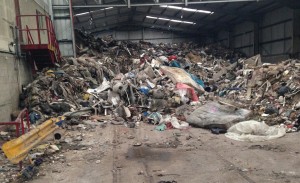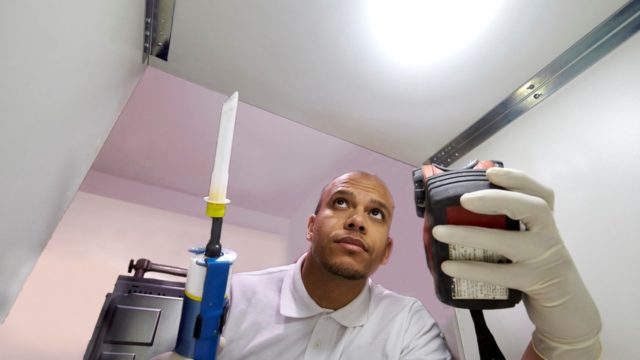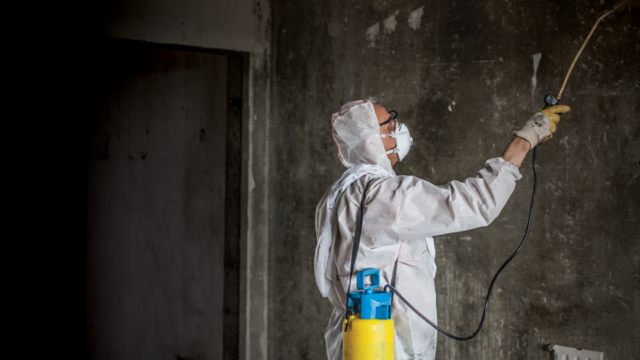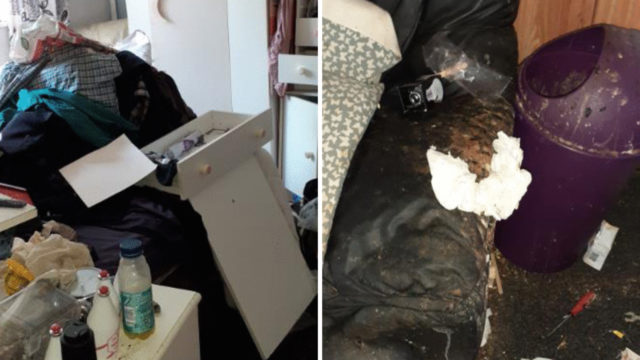CleanSafe Services is backing local authorities that crack down on fly-tipping as a BBC programme highlights the growing menace of illegally dumped waste across the UK.
In a new television documentary, BBC1’s Inside Out team has investigating how people irresponsibly fly-tip waste, and the increasingly creative ways local councils are trying to persuade people not to be litter bugs.
CleanSafe Services are experts in fly-tip waste cleaning, a process which often requires specialist protective clothing and equipment got guard against potentially lethal materials thrown in ditches and quiet lanes.

Steve Broughton, CleanSafe Services Managing Director, said: “It’s clear the Inside Out team will be revealing some shocking evidence of the anti-social attitude of people who fly-tip.
“Sadly, some of the worst offenders are people who claim to be legitimate waste management contractors, who are in fact rogues who are intent of making a fast buck by collecting waste then failing to use registered disposal sites.
“We know our reputation as a leader in extreme waste management rests on being scrupulous about how we dispose of our customers’ waste legally, responsibly and sustainably. Many others just don’t care.”
Official figures reveal that fly-tipping is getting worse across England, with local authorities spending £67 million annually on clearing up the mess. In 2014-15, local authorities handled 900,000 cases of fly-tipping, up for the second year in a row.
Fly-tipping is a criminal offence. Those found guilty can be fined up to £50,000 and be given prison sentences of up to five years.
From May 2016, councils in England were given new powers to issue fixed penalty notices of between £150 and £400 for what were defined as small-scale offences.
Councils are considering increasingly creative ways to track down and punish fly-tippers, and to try to prevent fly-tipping from happening by persuading people not to do it. Four of these anti-fly-tipping campaigns include:
- DNA profiling. Inside Out reveals how a campaign group in Hong Kong is profiling DNA found on fly-tipped waste and publishing images of what the culprits may look like in an attempt to catch them. Scientists were sceptical about whether this would work in the UK.
- Councils are carrying out sting operations, with some success, using Smart Water. This is water with a unique additional element. Councils mark waste materials with the Smart Water then call suspected fly-tippers to collect it. By testing fly-tipped waste they can then prove who had dumped it.
- Litter-bugging is child’s play. A community charity called Hubbub created a project called Communitrees, making faces out of litter dumped in a forest designed to make potential litter bugs feel they were being watched.
- Croydon Council in south London has a campaign to name and shame convicted litter louts and fly-tippers to deter others from also irresponsibly dumping their waste, no matter how small it might be.
Steve Broughton said: “Cracking down on fly-tippers and litter louts is important, as is publicity about the problem. It’s also vital to clear up fly-tipped waste as quickly as possible, so sites don’t become blighted and attract even more fly-tipping.
“Thanks to our expertise and experience in fly-tipping site clearance we can advise both local authority and commercial clients about cost-effective ways they can modify and manage areas most at risk from fly-tipping to discourage future problems.”
Inside Out is broadcast on BBC One England on Monday 19 September at 19:30pm, then across the UK on BBC iPlayer for 30 days.





